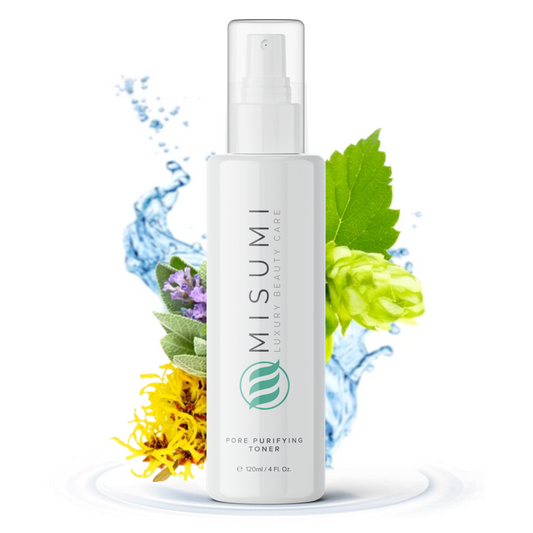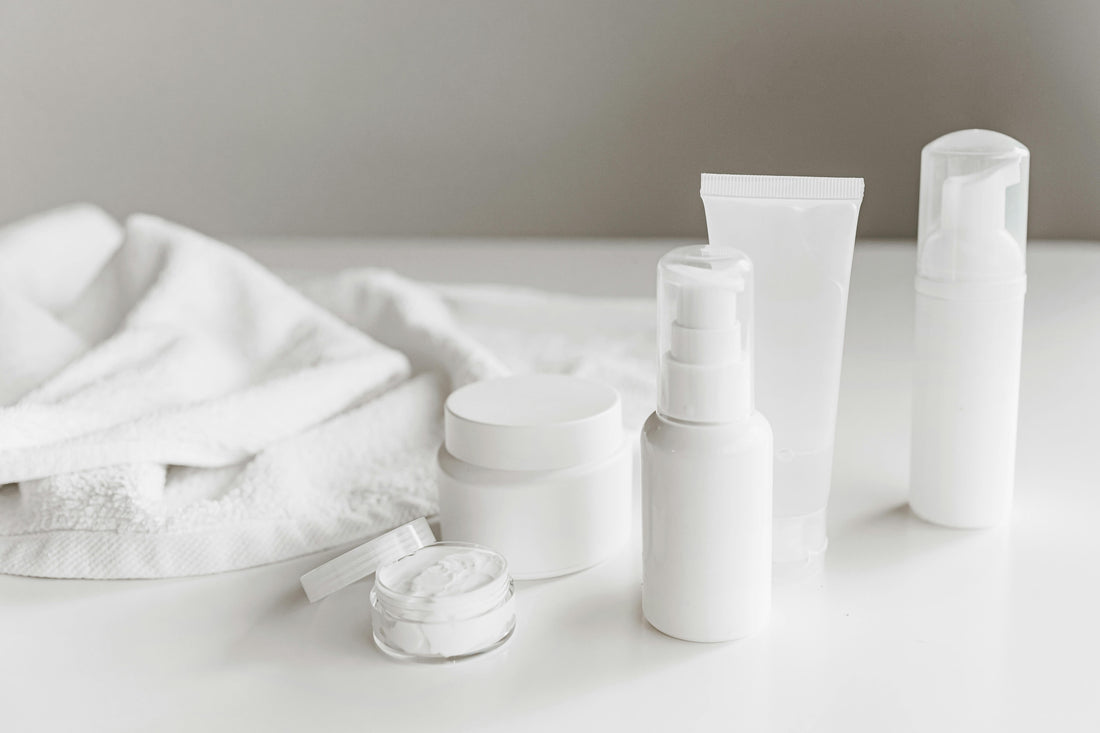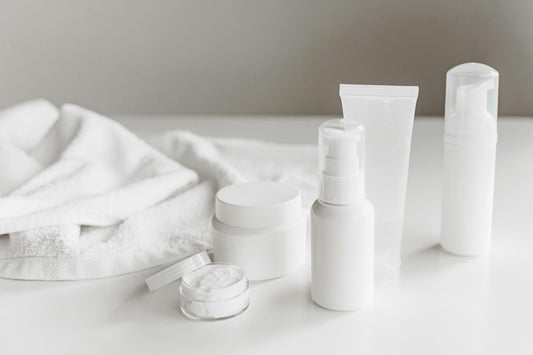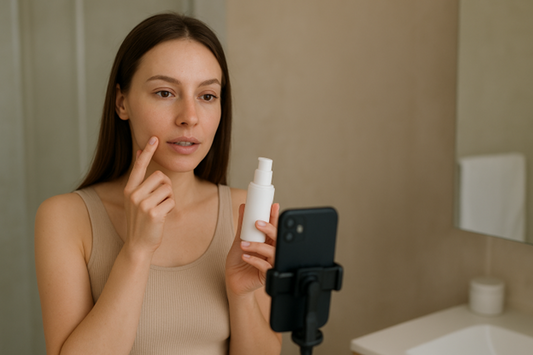Natural skincare’s popularity has reshaped the beauty industry as consumers seek safer, sustainable, plant-based options. Labels like “organic” and “clean beauty” inspire trust and purity. Yet, an important question remains: Are natural products truly safer for your skin in every case?
The situation is more complex than it seems. Natural ingredients may provide nourishment, hydration, and antioxidant protection. However, not all of these treatments suit every skin type. Some can cause irritation, allergic reactions, or inconsistent results due to limited testing and standardization.
In this article, we’ll explore the “natural equals safe” myth, revealing facts, risks, and insights for smarter skincare choices.
The Rise of Natural Skincare and What It Really Means
Natural skincare is increasingly popular as consumers grow mindful of what they apply to their skin. It focuses on botanical extracts, essential oils, and minerals while avoiding synthetic additives. However, “natural” lacks a universal definition, and labeling standards vary widely across global markets.
Research and Markets reported that the global Natural and Organic Cosmetics market was valued at $31.4 billion in 2024. It is projected to reach $52.2 billion by 2030. The market is experiencing a compound annual growth rate of 8.9%. This surge highlights a strong consumer shift toward perceived safety, transparency, and eco-friendly beauty alternatives.
Understanding Product Safety, Regulation, and Past Product Recalls
Consumer trust begins with product safety. However, skincare regulations remain complex and varied. Both natural and synthetic products must follow strict standards governing ingredient limits, formulations, and packaging requirements.
Safety can still be compromised, resulting in recalls due to harmful ingredients or contamination. Such recall incidents highlight weaknesses in manufacturing. They remind consumers that real safety relies on strict testing and regulation, not marketing claims or labels.
Like the toxic baby formula NEC lawsuit exposing failures in safety testing, beauty industry recalls highlight the need for strict quality control. Even “natural” products can face contamination risks. Mold and bacteria often thrive in poorly preserved, water-based formulations.
TorHoerman Law notes that the legal claims focus on serious allegations. Manufacturers, like Abbott Laboratories and Mead Johnson & Company, are named in the lawsuit. The claims assert they failed to adequately warn parents and healthcare providers about the products’ elevated risks.
These lessons highlight the importance of looking beyond “natural” labels. Consumers should prioritize brands that are transparent about testing, sourcing, and compliance with good manufacturing practices (GMP).
Natural Ingredients That Can Still Cause Irritation or Allergic Reactions
While natural ingredients are often praised as gentle, some can trigger irritation or allergic reactions, especially in sensitive individuals. Highly concentrated essential oils, like lavender and tea tree, may cause redness or dermatitis. Furthermore, common botanicals, like chamomile or aloe vera, can sometimes provoke allergic responses in certain users.
The American Lung Association reports that essential oils, being highly concentrated, can irritate the respiratory tract when inhaled directly. It may cause coughing, throat irritation, or shortness of breath. Individuals with respiratory conditions like asthma or COPD are particularly at risk. Essential oils can also trigger allergic skin reactions in sensitive individuals.
When Synthetic Ingredients Are Actually Safer for Your Skin
Contrary to popular belief, synthetic ingredients can be safer and more consistent than natural ones. They are formulated for stability and lower risk of contamination or allergies. Synthetic vitamin C and hyaluronic acid are often purer. Synthetic preservatives also prevent microbial growth, which improves product safety and shelf life.
DermNet reported that while synthetic safety is questioned, contact reactions to cosmetics are common, with adults using 6–12 products daily. Pooled data indicate a 10% prevalence of cosmetic allergy in patch-tested patients. Many mild reactions are likely underreported. It suggests that the risk of a reaction, whether from natural or synthetic ingredients, is a constant consumer reality.
How to Choose Safe and Effective Skincare Products
Choosing safe and effective skincare products goes beyond trusting labels like “natural” or “clean.” Always read ingredient lists carefully and check for dermatologically tested formulas. Look for certifications such as “hypoallergenic” or “non-comedogenic.” Performing a patch test before full use helps prevent irritation or allergic reactions.
A study published by ScienceDirect found that 9 out of 10 products appeared more natural when labeled with a “natural” claim. T-test results confirmed a clear difference for 5 products. In these cases, the label alone made people believe the products were safer and more natural, even without evidence.
This shows how marketing language can strongly influence consumer perception, underscoring the importance of making informed and evidence-based skincare choices.
Tips for Building a Skincare Routine That Puts Safety First
Building a safe skincare routine starts with understanding your skin type and introducing products slowly. You should not apply an excessive number of active ingredients to your skin simultaneously. Begin with gentle cleansers, moisturizers, and sunscreen before gradually adding targeted treatments that suit your specific skin concerns and sensitivities.
Always perform a patch test, especially with products containing essential oils or active ingredients. Avoid mixing too many exfoliants or acids, which can compromise the skin barrier. Consulting a dermatologist ensures your routine matches your skin’s needs.
Frequently Asked Questions
What should I do if I have an allergic reaction to a natural product?
If you have an allergic reaction to a natural product, stop using it immediately and rinse with cool water. Apply a gentle, fragrance-free moisturizer or hydrocortisone cream if advised. For ongoing redness or swelling, consult a dermatologist to identify the cause and prevent recurrence.
Do natural skincare products expire faster than conventional ones?
Yes, natural skincare products usually expire faster due to fewer synthetic preservatives. Their plant-based ingredients can oxidize or grow microbes more easily. To keep them safe and effective, store properly and use them within the recommended time after opening.
How can I research a brand’s safety record before buying?
To research a brand’s safety record, consult databases like the FDA or EWG Skin Deep for product ratings and recalls. Read verified reviews and check for third-party certifications. Trust brands that openly share ingredient details, testing methods, and sourcing transparency.
True Safety Lies in Knowledge
Natural skincare products can offer remarkable benefits, but they aren’t automatically safer than synthetic ones. Product safety depends on formulation quality, testing standards, and brand transparency, not marketing claims.
By understanding ingredients, checking certifications, and choosing reputable brands, consumers can create skincare routines that are both safe and effective.








